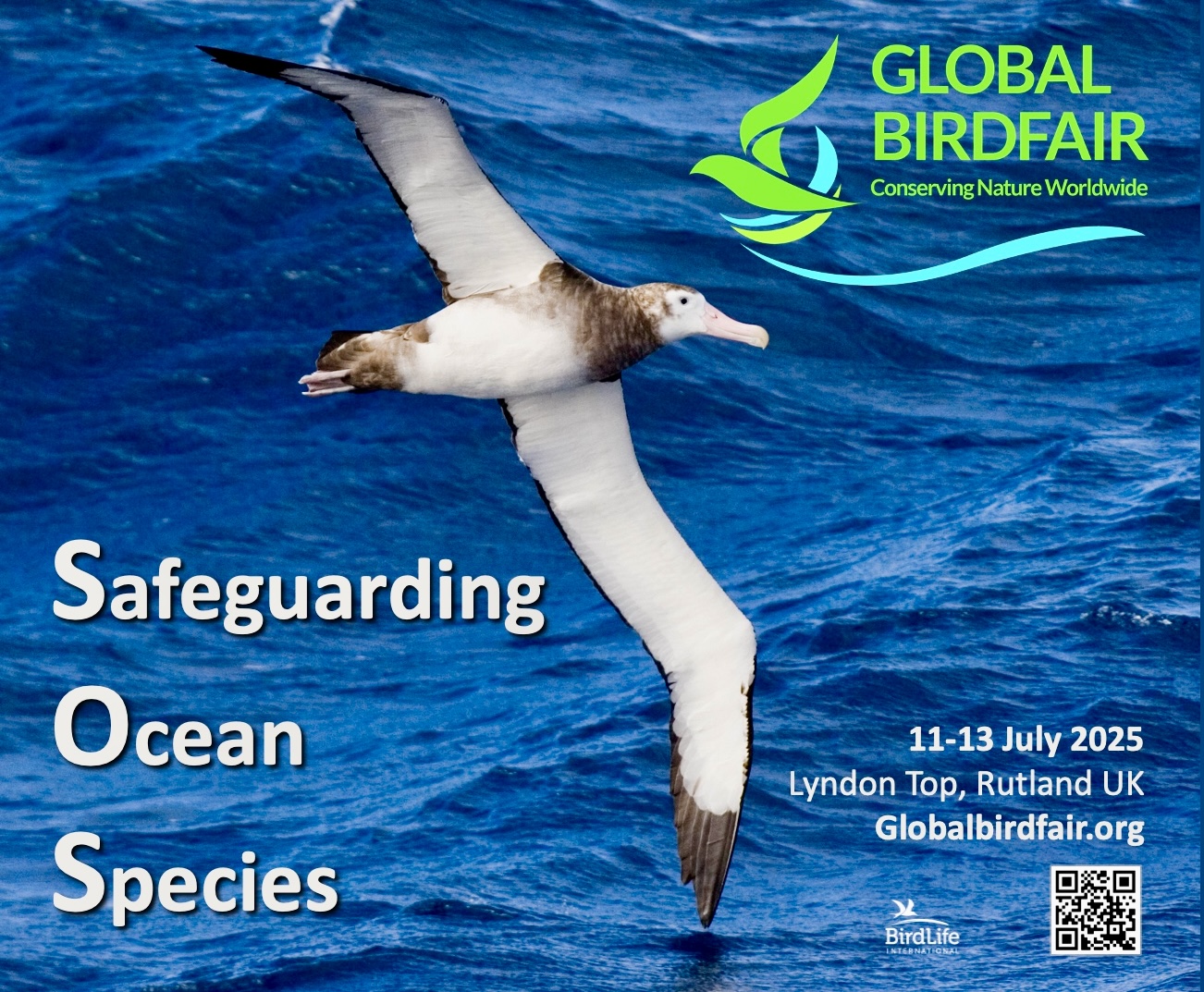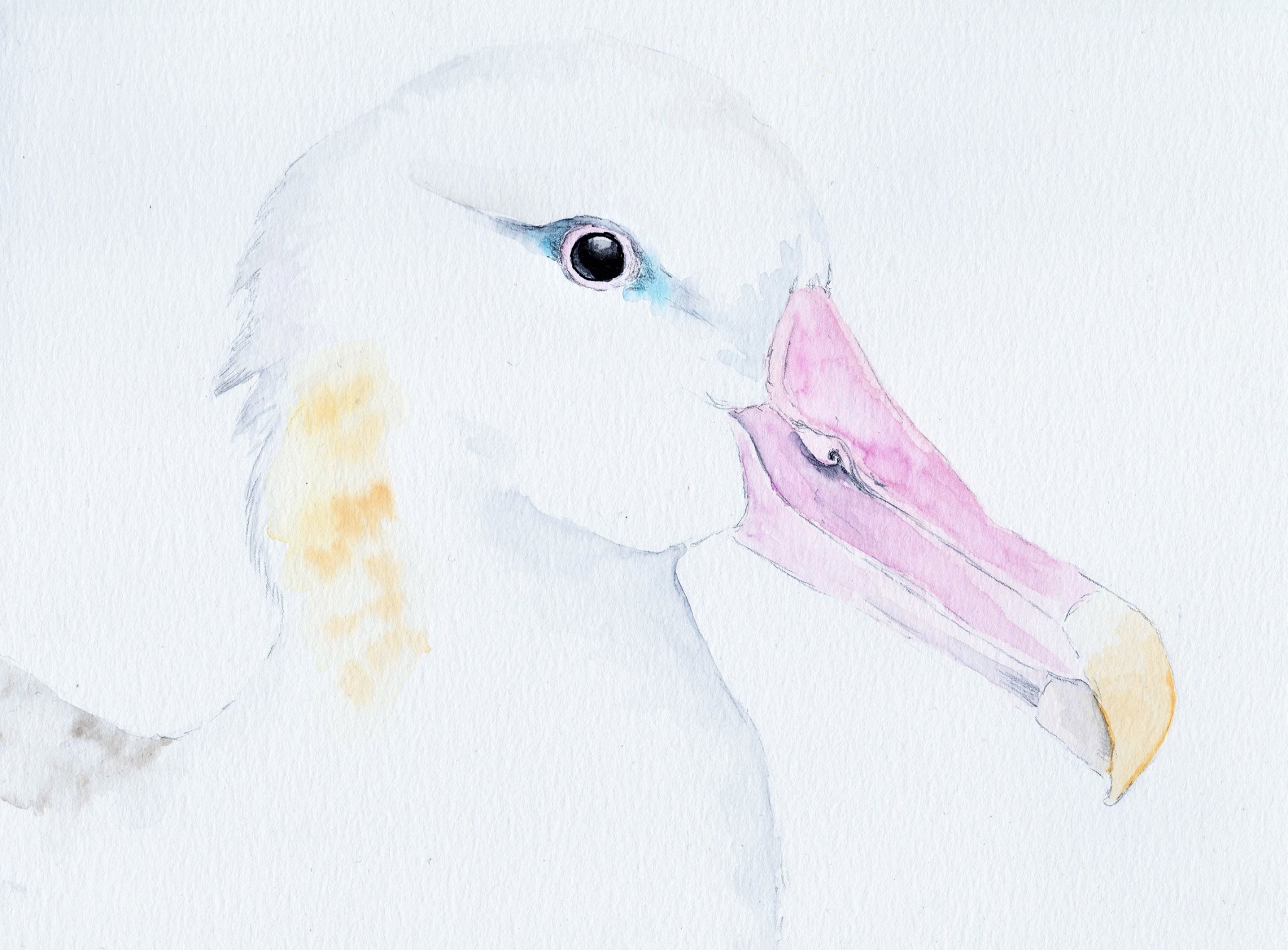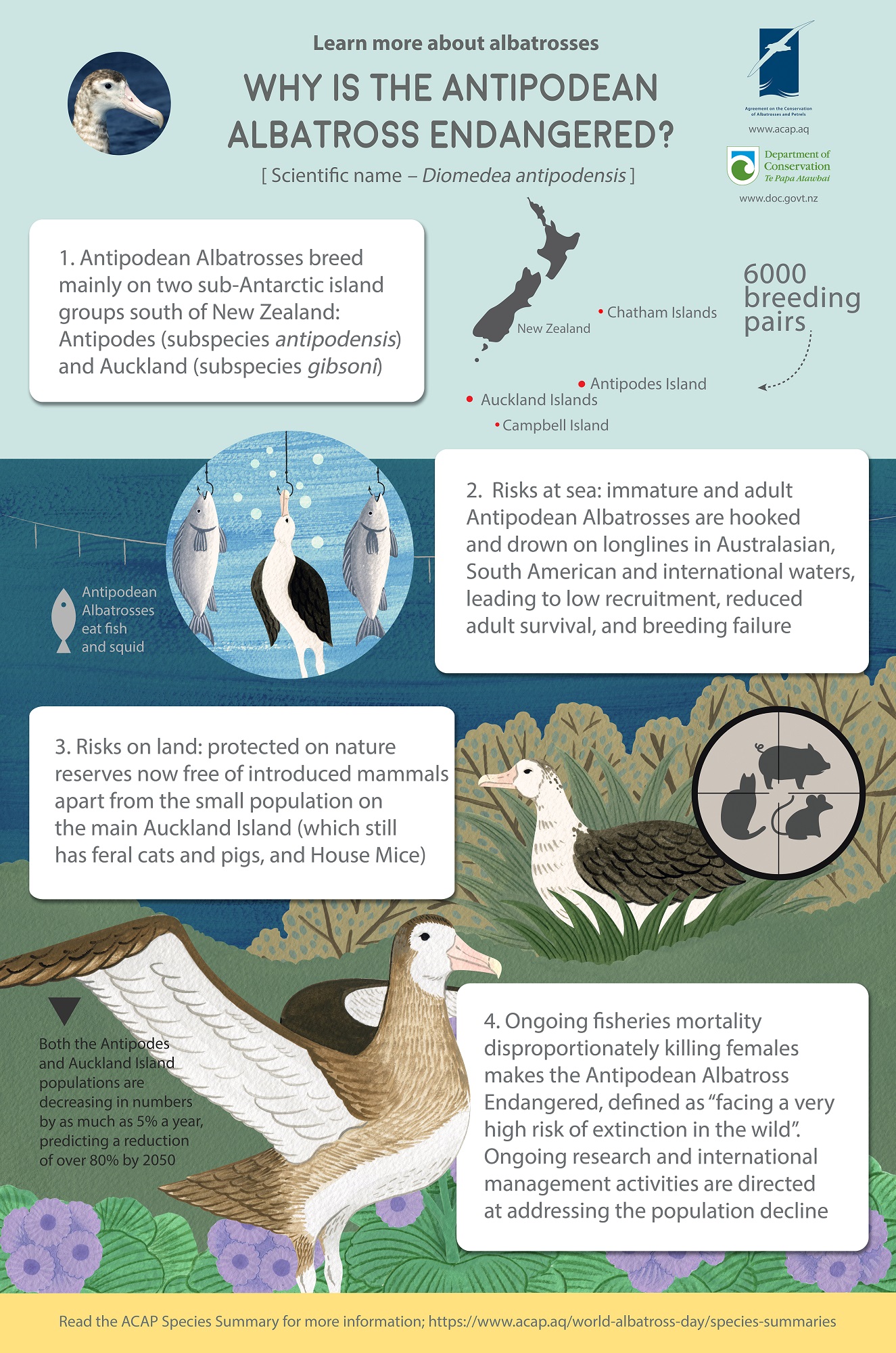 Antipodean Albatross photograph by David Tipling
Antipodean Albatross photograph by David Tipling
This year’s Global Birdfair will be held at Lydon Top, Rutland, UK over 11-13 July. The Global Birdfairs commenced in 2022, following a long run of annual British Birdwatching Fairs in Rutland that stated in 1989 and ended due to COVID19 in 2020. The 2025 fair will adopt as its conservation project “Safeguarding Ocean Species” and will look once again at the incidental mortality (bycatch) of albatrosses and petrels caused by longline fisheries. This follows from the 2000 British Birdwatching Fair, which marked the commencement of BirdLife International’s then Seabird Conservation Programme, with its theme of “Keeping Albatrosses off the Hook”,

Antipodean Albatross by ABUN artist Lea Finke for the inaugural World Albatross Day, 19 June 2020, after a photograph by Kirk Zufelt
The Global Birdfair 2025’s edited media release follows:
“We are excited to announce the Global Birdfair 2025 Conservation Project, Safeguarding Ocean Species. This important project concentrates on the South Pacific region and gives opportunities to create awareness on a Global scale, alongside BirdLife International’s Seabird and Marine Programme Conservation initiatives. Global longline fisheries bycatch poses the single greatest threat to many albatross and petrel species, including the Endangered Antipodean Albatross Diomedea antipodensis, this year’s flagship bird.
Among other species affected are Flesh-footed Ardenna carneipes, Buller’s A. bulleri, Sooty A. grisea and Short-tailed A. tenuirostris Shearwaters, plus other sub-Antarctic visitors to the region: giant petrels Macronectes spp., Grey Petrels Procellaria cinerea and smaller albatross species.
We hope that Safeguarding Ocean Species addresses critical gaps in awareness and compliance as follows:
Species: Ensures the adoption of best-practice seabird bycatch migration measures on longline fishing vessels, directly reducing interactions with highly threatened species like the Antipodean Albatross.
Ocean Systems: Contributes to more sustainable fisheries and healthier marine ecosystems, creating resilience against climate change and improving the long-term sustainability of ocean resources.
Society: Strengthens local livelihoods by employing a local Port-based Outreach officer and coordinator, while empowering women through training and paid opportunities to produce tori lines for vessels.
The project is closely aligned with the Agreement on the Conservation of Albatrosses and Petrels (ACAP). Additionally, the project supports the 2050 Blue Pacific Strategy by advancing sustainable fisheries management and promoting biodiversity conservation as part of a broader vision for resilient Pacific ecosystems. Working together, we all need to address the critical state of the World’s Oceans as habitats.”

The globally Endangered and Nationally Critical Antipodean Albatross, endemic to New Zealand, has been identified as a Species of Special Concern by ACAP. The Species Infographic for the bird is freely available foi downloading as posters in three languages here,
Ticket sales for Global Birdfair 2025 open in February. Watch a short video on this year's fair here
With thanks to Tim Appleton MBE, Global Birdfair Co-organizer.
John Cooper, Emeritus Information Officer, Agreement on the Conservation of Albatrosses and Petrels, 22 January 2025

 English
English  Français
Français  Español
Español